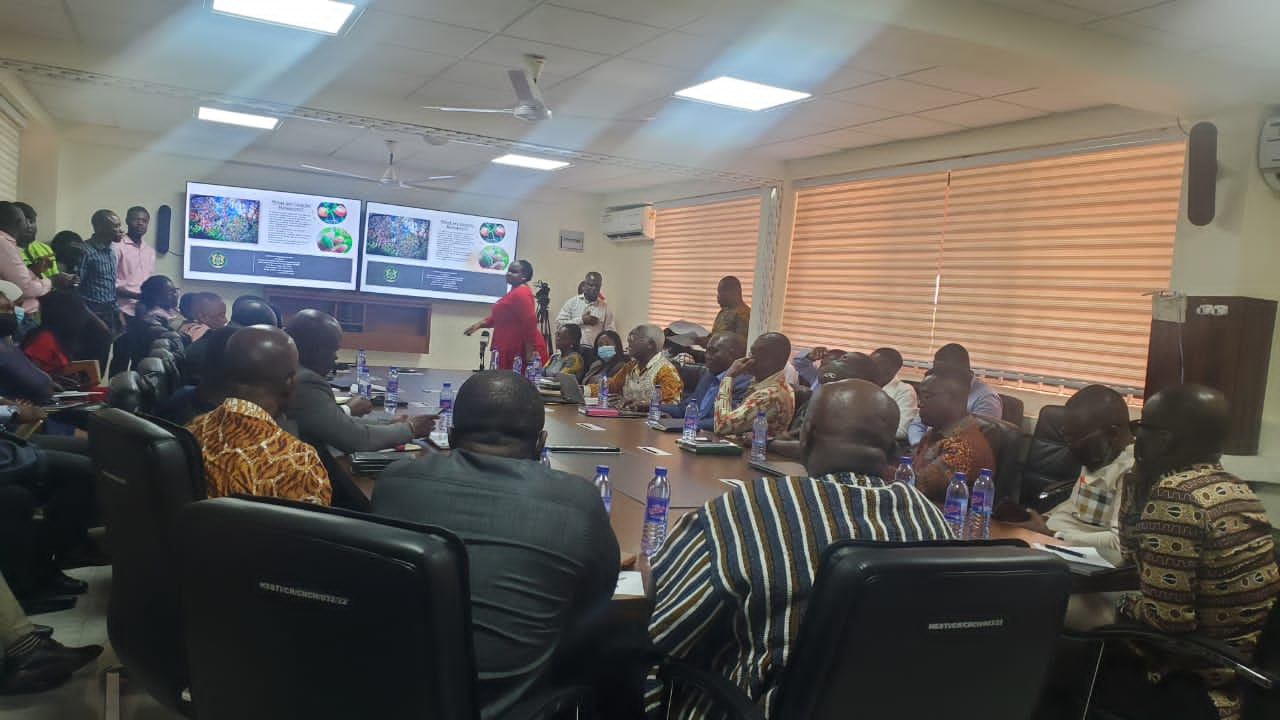Source: Need Desk
The Ministry of Environment Science Technology and Innovation (MESTI) has organised a sensitization workshop on the Nagoya Protocol with specification on the Access to Genetic Resources and the fair share of Benefits arising from its use with the media, CSOs and relevant governmental institutions such as : NDPC, CSIR, EPA and the National biosafety commission.
The workshop focused on government interventions on Access and Benefit Sharing (ABS)
In a presentation by Prof. Oteng Yeboah where he gave a background of the protocol as riding on the back of Agenda 21 which was adopted in Rio de Janeiro to combat environmental damages, poverty and disease control through global alliance on common interests , needs and mutual responsibilities.
He also stated that it was out of Agenda 21, that the convention on Biological convention was birthed and it had 3 main goal which contributes greatly to the aim of combating environmental damages on Agenda 21.
CBD has 3 focal areas which are:
1. Conservation of Biological Diversity.
2.The sustainable use of the components of biological diversity.
3.The fair and equitable sharing of the benefits arising out of the utilization of genetic resources.
The convention was aimed at helping countries/parties develop national strategies for conservation and it’s sustainable use.
Presentation on the Nagoya Protocol was handled by ( the man we spoke to) where he stated the protocol was birthed by the 3rd goal of the CBD.
*The Protocol which primarily focuses on Access to Genetic Resources and the Fair and Equitable Sharing of Benefits Arising from their Utilization*, and aims at sharing the benefits arising from the utilization of genetic resources in a fair and equitable way.
This goes a long way to say that anyone with access to knowledge on Genetic resources and benefiting from it’s use should share its profits or gains with the country of origin/ or community.
Genetic resources are hereby explained as:
🍭Material of plant, animal,microbial or other origin containing functional units of heredity with actual potential value.
🍭Parts of biological resources needed or used for their genetic material and not for other attributes *(Glowka et al,1994)*
And not applicable to goods in trade.
They are replaceable and come in gene basis. Hence it’s concepts of Preservation are limited to natives particularly, genes from tropical regions.
The next presentation was focused on areas of *interventions by government on ABS* which includes:
National Legislation/administrative/policy measures such as the
1. lmplementation of Prior lnformed Consent(PIC) and Mutually Agreed Terms(MAT).
2. Position of Traditional Knowledge reflecting articles 8(j),15,16,17,18 and 19 of the Convention text.
Issues regarding Capacity development, both lnstitutional and Human were raised and also, issues of Digital Sequence Information(DSI) and all aspects of Synthetic Biology including Nanotechnology.
The government was advised to establish clear rules and procedures for requiring and establish mutually agreed terms;
Such terms should be set out in writing and may include:
(i)A dispute settlement clause; with terms on benefit-sharing,including in relation to intellectual property rights.
(ii)Terms on subsequent third party use, if any and,
(iv)Terms on charges of intent,where applicable.
At the end of the meeting it was advised that government makes anyone trying to access genetic resources from the country abides by the rules of engagement of CBD therein, obeying all 3 objectives as well as the Nagoya Protocol on Access to Genetic Resources and Benefit Sharing.
🍭Benefits from genetic resources should be used to achieve goals of CBD particularly *Conservation and sustainable use* and nothing more.
🍭Communities with rights over knowledge should be part of decision making process.
🍭 It was mentioned that Ghana is losing a lot of genetic resources hence the need for rigorous public education on the Protocol nationwide.
Source: www.thenewindependentonline.com







